Akamas: The Most Biodiverse Area in Cyprus Is Under Threat
On the western side of Cyprus, a decades-long battle to preserve the iconic Akamas National Forest Park is still ongoing.
In 2009, the Government of the Republic of Cyprus designated part of the Akamas peninsula as a Natura 2000 site as several of Akamas’s habitats have been designated as Special Protection Areas under the EU Birds Directive and as Sites of Community importance under the EU Habitats Directive.
The area is considerably fragmented since it has different ownership statuses (state-owned forest land and private land) and it is governed by three different spatial planning regimes that will regulate future development in the area. To make things even more complicated, five government departments are responsible for Akamas’ protection and management, in addition to several local authorities that have jurisdiction over the area.
Despite its obligations under EU and national law, Cyprus has failed to establish adequate conservation objectives and measures for Akamas that would ensure that species and habitats are adequately protected, all while fragmentation contributes to lack of coordination, conflict of interests, and complications when it comes to policy making and law enforcement.
A unique peninsula
Akamas peninsula is located on the westernmost part of the island of Cyprus and covers a terrestrial and marine area of pristine and diverse landscape. It hosts archaeological sites and a variety of habitats, from pine forests to low shrubs, from valleys to streams, from grasslands to fruit trees, and from gorges to sandy shores.
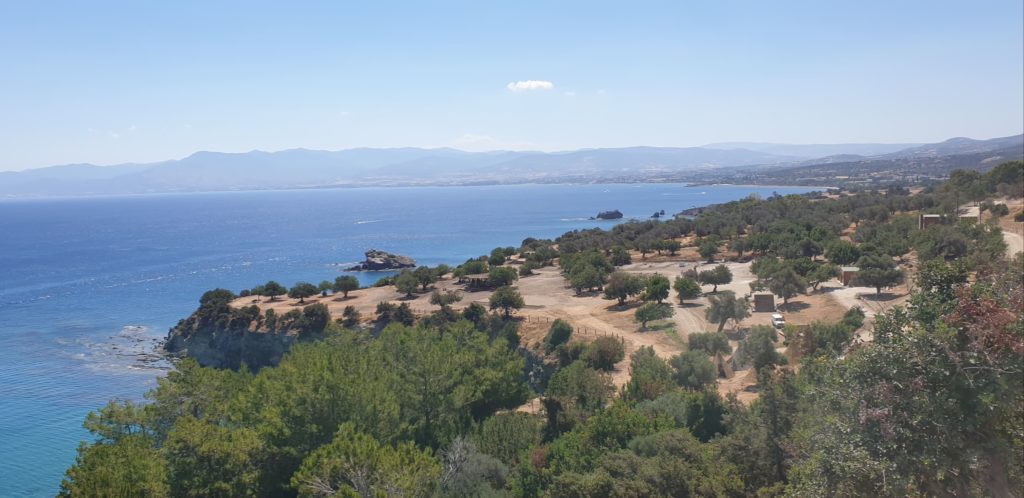
Species of European importance, such as the Mediterranean Monk Seal and the Egyptian Fruit Bat form colonies on Akamas, the Green Turtle and Loggerhead Turtle nest on its shores, while the Bonelli’s eagle breeds on the mountainous parts of the peninsula. Akamas is the most biodiverse area under the effective control of the Republic of Cyprus and one of the few remaining natural areas that has not been irreversibly damaged by the tourism industry and other sectors.
Pressures and threats
Until the year 2000, the peninsula was used by the British Army and Navy for military exercises and as a firing range. Thankfully, this is no longer the case, but over the past few decades, the area has been facing various pressures and threats, including but not limited to fly-tipping, arson, legal and illegal hunting, overgrazing, uncontrolled movement, and parking of motor vehicles and anchoring of tourist boats, illegal expansion of a quarry zone, and unlicensed structures and buildings.
This unique natural area is gradually degrading due to increased human presence and activity, and the most recent government plans are not exactly reassuring of the future. Corporate interests and inefficient governance interact dynamically and uncover new and persisting challenges for the extremely vulnerable ecosystems. If the worst scenarios become a reality, a unique natural area of national and European significance will suffer irreversible damage, while the loss of the competitive advantage of the area will probably affect the long-term economic prospects of local communities.
An incapable justice system, lack of transparency and legislation gaps
Frequently, the current laws are disregarded as construction projects proceed without the required permits, such as excavations, roadwork, and building construction. Surprisingly, those responsible for such violations often escape prosecution and penalties, what creates substantial barriers to pursuing timely legal remedies, especially in cases related to environmental matters, including the Akamas region. Only after a protracted five-year legal process was the rightful entitlement of environmental NGOs to engage with the national courts for the purpose of ensuring environmental protection officially acknowledged by the relevant court.
Lack of transparency concerning policy-making and law-making are also longstanding issues public consultation procedures are compromised by design and citizens are left to speculate what certain key policy documents prescribe to make representations. This is standard practice, but it clearly constitutes a violation of EU legislation and of the Aarhus Convention on Access to Information, Public Participation in Decision-Making and Access to Justice in Environmental Matters. Another problem is the fact that the Cypriot Parliament refuses to record the meetings of Parliamentary Committees and obstructs the direct access of citizens to information.
Landowners of private property within the Natura 2000 sites claim that they are being deprived of their development rights since their plots, which were classified as tourist zones, were later designated as protected sites. Development rights are contingent on zoning plans, but a legislative gap exists for undevelopable properties. The state hasn’t provided maps or discussed options like compensation or exchange for these plots.
Last, but not least, the Seventh Protocol to the Barcelona Convention on Integrated Coastal Zone Management in the Mediterranean, which came into force in 2011, has not yet been ratified by the Republic of Cyprus. The said Protocol imposes a no-building zone of a width of 100m from the shore when at present, special deviations from national legislation allow constructions within 30 meters from the shore in certain cases.
The role of the Church and Corruption: A deeply rooted phenomenon
A Specially Protected Area of Mediterranean Importance called “Lara-Toxeftra” in Akamas is private land that belongs to the Greek-Orthodox Paphos Bishopric. The Paphos Bishopric and the Cyprus Archbishopric have been interfering in the functioning of public institutions for the purpose of serving their own financial interests for many years. Since the 1990s they have been advocating for tourist development in the area and they even facilitated the transport of large volumes of sand from the beach to a golf course under construction, without facing any consequences. The church often receives favourable treatment and has strategic influence that undermines the effectiveness of institutions under different circumstances that affect the common cultural and natural heritage on the island.
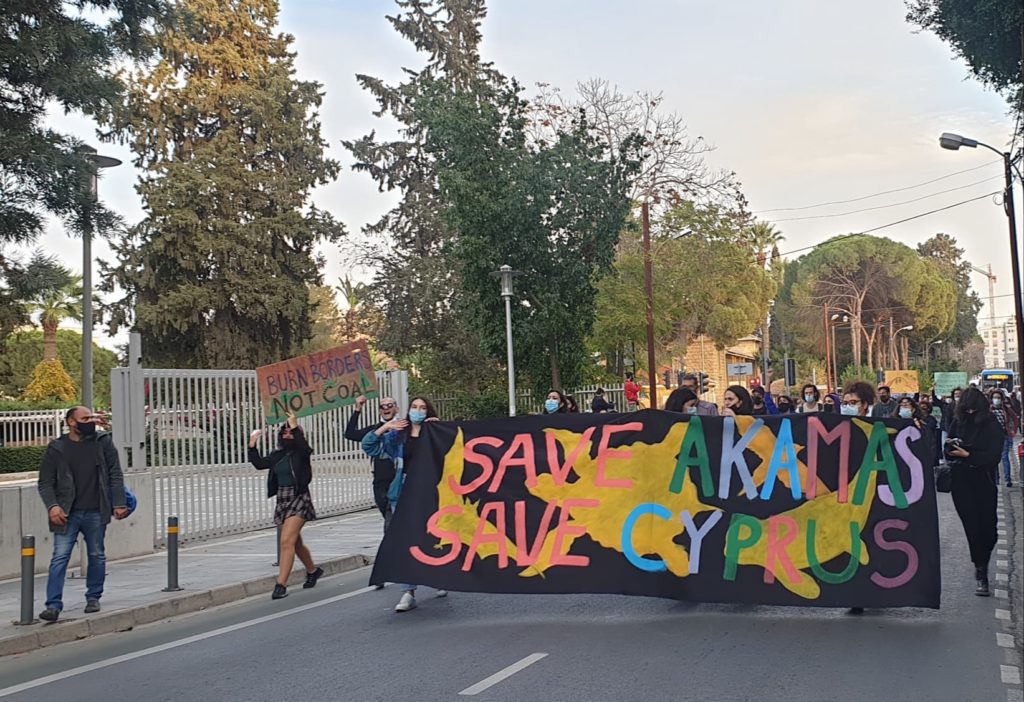
In Cyprus, real estate firms collaborate with legal experts, accountants, politicians, and officials, leveraging their influential networks to exploit power for personal benefit supporting measures such as to amend laws and encourage investments through a controversial “golden passport” scheme. In 2020, Cyprus made international headlines when Al Jazeera’s Investigative Unit published leaked documents that revealed that 2,500 people, including convicted criminals from third countries, paid to become citizens of the Republic Cyprus and, consequently, citizens of Europe.
As a result, the European Commission considered that such schemes have implications for the EU as a whole and took measures against Cyprus. And even though the said scheme was repealed, officials still try to satisfy the wishes of affluent investors by devising new methods to bypass – as far as possible – legislation that protects the environment.
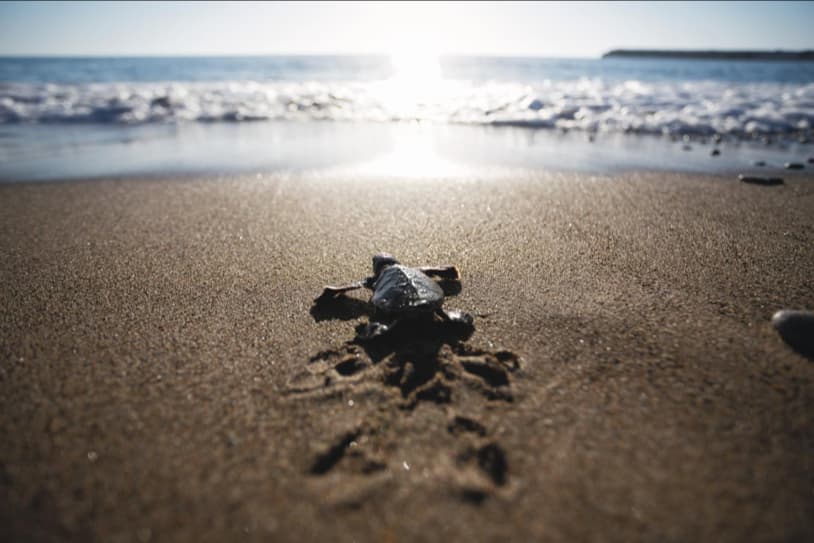
Violations of EU law and the EU’s involvement
Admittedly, the Republic of Cyprus does not have a good track record when it comes to environmental matters and good governance. Several environmental infringement cases are open with the European Commission, and some of them are in fact directly related to Akamas peninsula and the Natura 2000 sites. The EU Commission has sent multiple formal notices and reasoned opinions urging Cyprus to take effective and legally binding actions to achieve compliance.
Following a petition submitted by Friends of the Earth Cyprus to the European Parliament in 2022, the Commission stated that it will “continue to maintain pressure on Cyprus so that adequate conservation objectives and measures are established for all Special Aras of Conservation, including the one of Akamas. Otherwise, the Commission will not hesitate to take adequate action against Cyprus, including if necessary, referring the infringement case to the Court of Justice of the EU”. The EU Parliament has also decided to keep the Petition open in order to follow up developments and ensure that the acquis communautaire is applied.
Conservation efforts and a movement working for Akamas
The situation is not, however, entirely grim. The competent government departments, alongside a handful of NGOs and local communities, have been working on research, conservation, and education in Akamas. A conservation project for turtles has been implemented since the 1970s and has had extremely encouraging results for the populations of both species of Mediterranean turtles: the Green Turtle and Loggerhead Turtle.
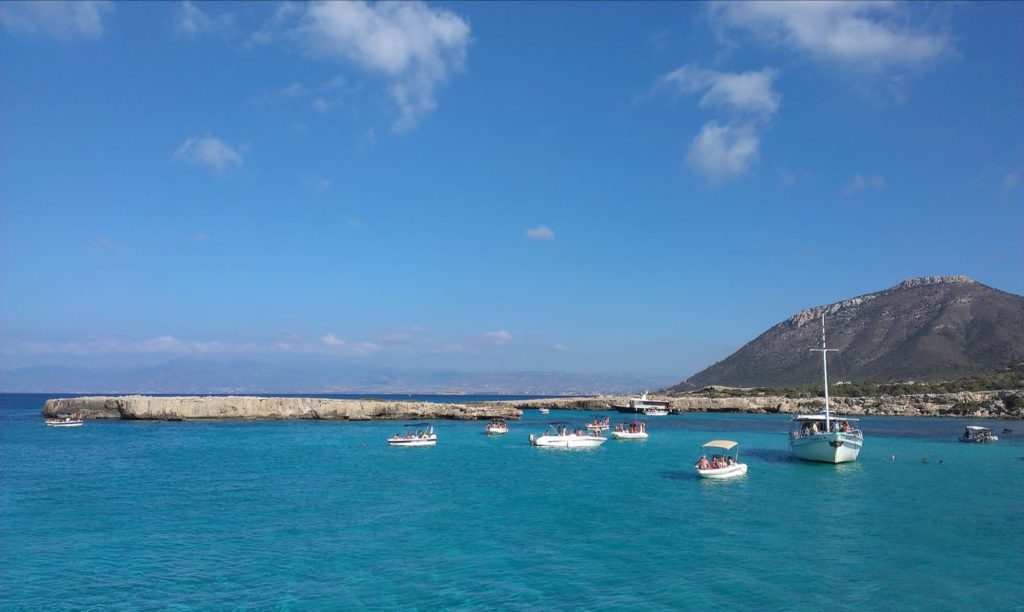
Moreover, a focal point has been the active citizens movement demanding the adequate protection of Akamas through advocacy and protesting. Over the years, thousands of people took to the streets to show opposition to plans that allow large-scale tourist developments, extensive road networks, roundabouts, constructions, and business activities that undermine the Natura 2000 sites and the economic prospects of local communities.
A holistic vision for Akamas
The Standing Committee of the Bern Convention on the Conservation of European Wildlife and Natural Habitats recommends that “the Government of the Republic Cyprus declares the whole of the Akamas peninsula a national park, a biosphere reserve or a protected area with comparable international protected status, including in the protected area the Natura 2000 area, aiming to facilitate a coordinated management of sea-turtle nesting beaches in north-west Cyprus, and to ensure that the Akamas Peninsula, as a whole, including a terrestrial and a marine part, be managed in a sustainable, integrated way”.
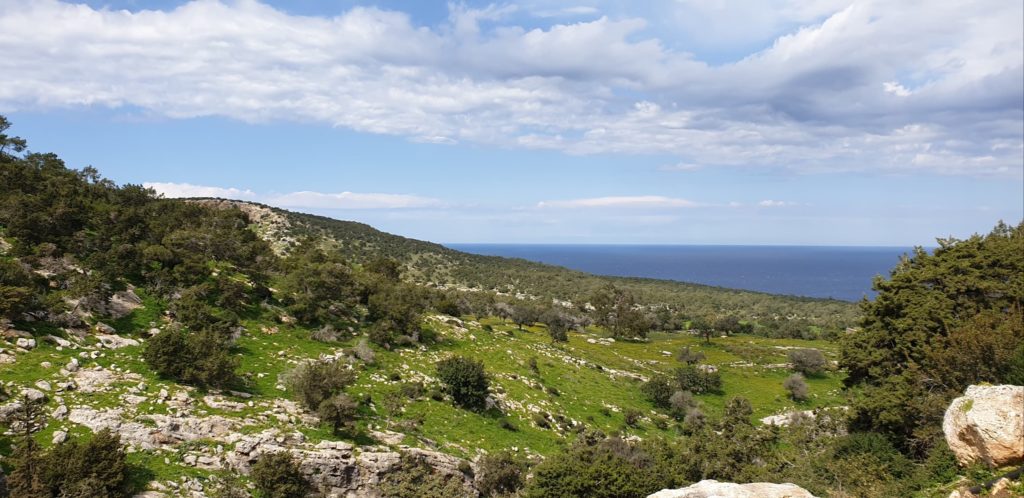
This is the vision shared by the movement working for Akamas that, however, goes a step forward and recommends the setting up of a special entity for the integrated management of the peninsula, drawing from the experience of other Natura 2000 sites that are being properly managed. This entity could be charged with monitoring the enforcement of applicable rules and coordinating the activities taking place on the peninsula, ultimately ensuring environmental protection and sustainable development for local communities.
The delicate ecological balance that has been shaped over millions of years cannot be left to chance. Focused action and undivided attention will be needed to rectify the irregularities and achieve meaningful progress. It will not be easy, and it will take time, but in the face of a biodiversity crisis and climate crisis, areas such as Akamas need to be protected and restored, using all the opportunities provided by the European Union – for the sake of current and future generations.